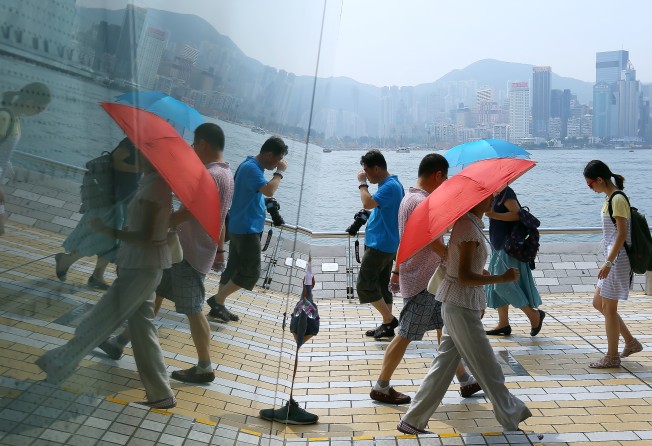Public outcry over Avenue of Stars plan is a message to the Hong Kong government: no bending of the rules will be tolerated
Peter Kammerer says as outrage over the Avenue of Stars redevelopment plan shows, Hong Kong people expect accountability in all public decisions

Hong Kong makes a big deal of rules and laws. They are what makes our city so different from the mainland, we are told. As long as we have, cherish and uphold them, we can feel secure and companies can confidently do business. Why, then, does the government on occasion act as if this pillar of society does not exist?
Any number of instances can be cited, but the one of late that rankles most is the decision to renew and enlarge New World Development's control of the eastern half of the Tsim Sha Tsui waterfront to Hung Hom.
There is no better place to take in the view of Hong Kong Island's stunning skyline or enjoy the majesty of our city's most valuable natural asset, Victoria Harbour. It is a place for locals and tourists alike - passing it to a company to develop and manage violates a promise to give the harbour back to the people.
But that's just part of it: this was done without consultation or an open bidding process and at the cost of the area being closed for public use for an anticipated three years.
During that time, New World, under a new 20-year deal, will revitalise the Avenue of Stars tourist attraction and add on a 500-metre extension to the 440-metre section it has managed since 2004 in front of its New World Centre, build a food plaza, film gallery and performance venue. Restaurants will also be put at nearby Salisbury Garden.
The Leisure and Cultural Services Department has promised that there will not be any high-end restaurants and shops, but we only have to look at the travesty of Cheung Kong's 1881 Heritage project on the site of the former Marine Police Headquarters to be sceptical.
There was no public concern when New World built the Tsim Sha Tsui promenade in 1982 and the Avenue of Stars 22 years later. But times have changed: there have been court rulings over harbour reclamation and protests over the demolition of the Star Ferry pier in Central. Understandably, then, despite the Avenue of Stars being in need of a spruce-up, there is a public outcry.
There's also the matter of the Harbourfront Commission and what it's supposed to do. I can't think of a better role for it than to be intimately involved in so important a part of our harbour. You have to wonder why it isn't. Among the commission's terms of reference is to "play an advocacy, oversight and advisory role in the envisioning, planning, urban design, marketing and branding, development, management and operation of the harbourfront areas and facilities on a continuous and ongoing basis". Minutes of its meetings certainly show it has been well aware of New World's plans. It has made its views known - but there is no certainty that what it advises will be listened to.
The government is supposed to lead by example. It sets the rules and expects us to follow them - which gives it no excuse to do otherwise.
If it promises public access to the harbourfront, it has to do that. The manner in which New World has been chosen and put in charge breaks that pledge.
The popular theme song to the 1980s TVB drama You Only Live Twice neatly sums up the sentiment. In the song, It's Hard to Draw a Line Between Good and Evil, an ordinary man and the devil have a conversation; they agree that the world is full of corruption and the streets are full of robbers, so there is no need to apply for a licence to break the law.
That was three decades ago, in different times, but there's increasingly a sense that not much has changed.
Hong Kong has laws, the authorities are not shy about holding public consultations and have made many pledges to uphold the highest standards. Despite that, they, on occasion, still feel the need to bend the rules and do as they please.
No wonder some citizens no longer trust what the government says and feel that they, too, can ignore the rules.
Peter Kammerer is a senior writer at the Post